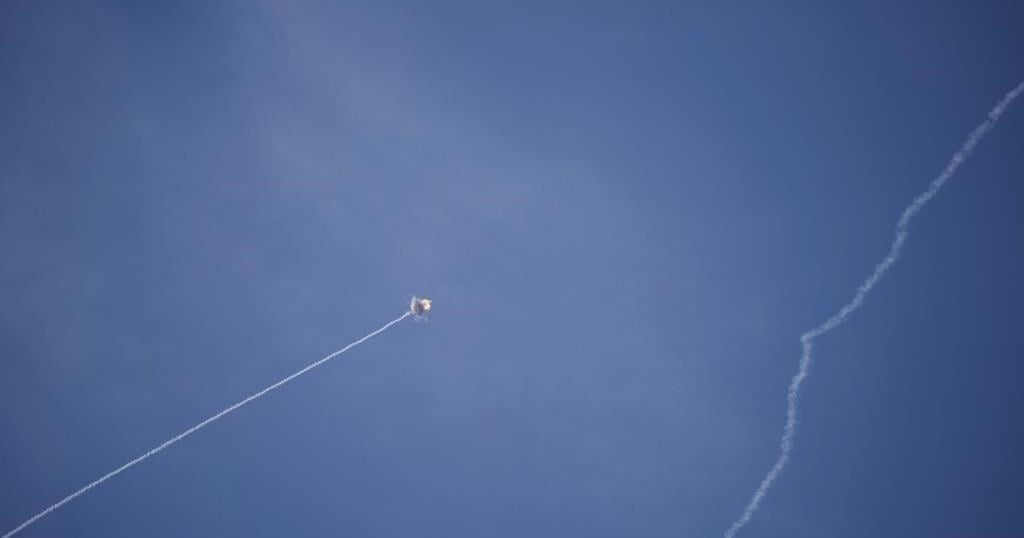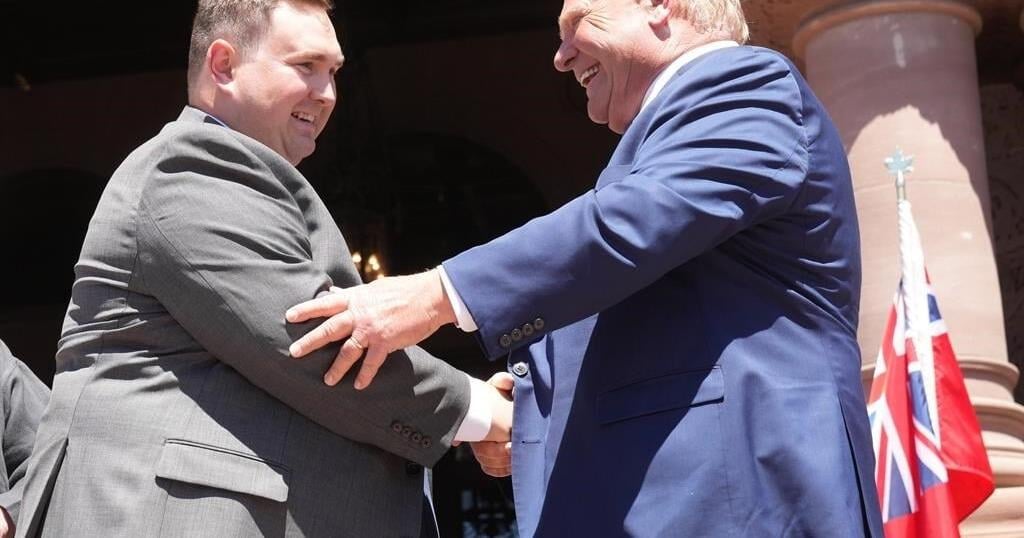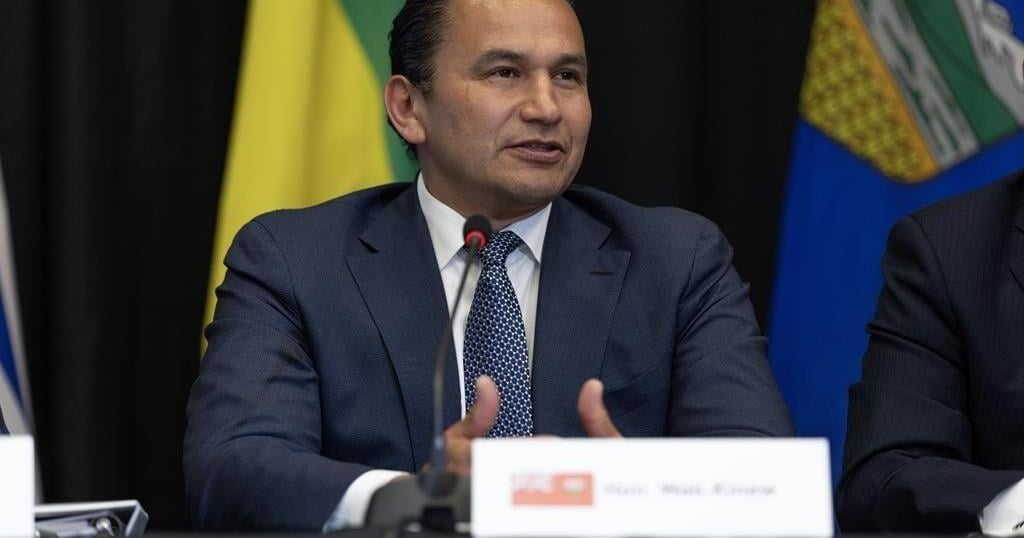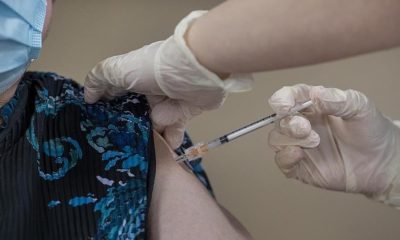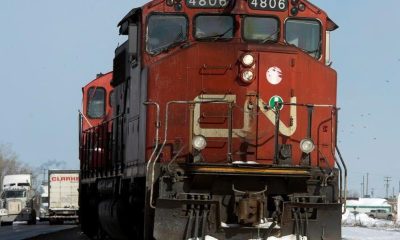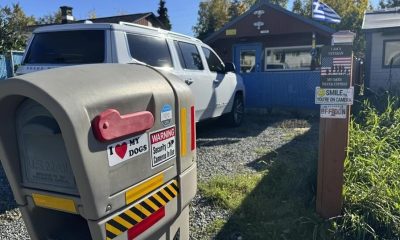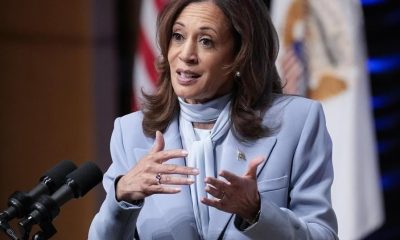BEIRUT (AP) — The Israeli military announced that its airstrike Friday on a neighborhood of Beirut killed Ibrahim Akil, a senior Hezbollah military official. There was no immediate confirmation of his death from Hezbollah.
The Israeli strike in the southern suburbs of Lebanon’s capital killed at least nine people and wounded nearly 60 others, according to Lebanese health officials, and flattened two apartment buildings. The Israeli military also claimed that its strike killed other “top operatives” of Hezbollah’s elite Radwan Force, without elaborating.
A Hezbollah official has confirmed that Akil was supposed to be in the building in the Dahiya district that was hit.
Akil has served on Hezbollah’s highest military body, the Jihad Council, and has been sanctioned by the United States for being involved in two terrorist attacks in 1983 that killed more than 300 people at the U.S. Embassy in Beirut and the U.S. Marine Corps barracks.
THIS IS A BREAKING NEWS UPDATE. AP’s earlier story follows below.
BEIRUT (AP) — An Israeli airstrike hit a neighborhood of Beirut on Friday, killing at least nine people and wounding nearly 60 others, Lebanese health officials said, the deadliest such Israeli attack on Lebanon’s capital since the 2006 war between Israel and the Hezbollah militant group.
Israel’s strike on a crowded southern suburb of Beirut targeted a senior Hezbollah military official, signaling a major escalation in the past 11 months of war.
It came shortly after Hezbollah pounded northern Israel with 140 rockets and the region awaited the revenge promised by Hezbollah leader Hassan Nasrallah over this week’s mass bombing attack on pagers and walkie-talkies belonging to Hezbollah members.
Since Hamas’ Oct. 7 attack on Israel prompted the Israeli military’s devastating offensive in Gaza, tensions have surged into regular cross-border attacks between Israel and Iran-backed Hezbollah. The exchanges of fire over the past year have largely struck evacuated communities in northern Israel and less-populated parts of southern Lebanon. The last time Israel hit Beirut was in a July airstrike that killed senior Hezbollah commander Fuad Shukr.
Friday’s strike hit the sprawling Dahiya district during rush hour, as people were leaving work and children heading home from school.
Local networks broadcast footage that showed a high-rise building completely flattened in Jamous area, just kilometers from downtown Beirut where Hezbollah holds sway. First responders scrambled through the tangled streets and combed through the rubble of at least two collapsed apartment buildings to search for more missing people. Health authorities said at least eight of the 59 wounded were in critical condition.
An Israeli official, speaking on condition of anonymity to discuss behind-the-scenes security matters, said the strike targeted Ibrahim Akil, the head of Hezbollah’s elite Radwan Force. An official close to Hezbollah also speaking on condition of anonymity, confirmed that Akil was supposed to be in the building when it was hit.
It was not immediately clear whether Akil, who also served on Hezbollah’s Jihad Council, the group’s highest military body, was killed.
The United States has sanctioned Akil for his alleged role in carrying out the 1983 bombing that killed more than 300 people at the U.S. Embassy in Beirut and the U.S. Marine Corps barracks. Last year, the State Department posted a $7 million reward for information leading to his identification, location, arrest or conviction and said he also directed the taking of American and German hostages in Lebanon in the 1980s.
Shortly after the Israeli airstrike on Beirut, Hezbollah announced two more attacks on northern Israel, one of which it said targeted an intelligence base from which it claimed Israel directed assassinations. Israel offered no immediate comment on those latest strikes.
Israel and Lebanon have been on edge since Hezbollah pagers and walkie-talkies exploded en masse this week, killing at least 20 people and wounding thousands in Lebanon in attacks widely attributed to Israel.
Over the last day, Hezbollah said that it fired rockets at several Israeli military sites along the border with Katyusha rockets, including multiple air defense bases as well as the headquarters of an Israeli armored brigade.
The Israeli military said that 120 missiles were launched at areas of the Golan Heights, Safed and the Upper Galilee, some of which were intercepted. Fire crews were working to extinguish blazes caused by pieces of debris that fell to the ground in several areas, the military said. The military didn’t say whether any missiles had hit targets or caused any casualties.
Another 20 missiles were shot at the areas of Meron and Netua, and most fell in open areas, the military said, adding that no injuries were reported.
Hezbollah said that the rockets were in retaliation for Israeli strikes on villages and homes in southern Lebanon, not two days of attacks widely blamed on Israel that set off explosives in thousands of Hezbollah pagers and walkie-talkies.
On Thursday, Israel said its military had struck “hundreds of rocket launcher barrels” in southern Lebanon, saying that they “were ready to be used in the immediate future to fire toward Israeli territory.”
The army also ordered residents in parts of the Golan Heights and northern Israel to avoid public gatherings, minimize movements and stay close to shelters in anticipation of the rocket fire that eventually came Friday.
Hezbollah and Israel have exchanged near-daily fire since Oct. 8, a day after the Israel-Hamas war’s opening salvo, but Friday’s rocket barrages were heavier than normal.
Nasrallah on Thursday vowed to keep up daily strikes on Israel despite this week’s deadly sabotage of its members’ communication devices, which he described as a “severe blow.”
At least 20 were killed in the attacks and thousands were wounded when pagers, walkie-talkies and other devices exploded in Lebanon on Tuesday and Wednesday.
The sophisticated attacks have heightened fears that the cross-border exchanges of fire will escalate into all-out war. Israel has neither confirmed nor denied involvement in the attacks.
In recent days, Israel has moved a powerful fighting force up to the northern border, officials have escalated their rhetoric, and the country’s security Cabinet has designated the return of tens of thousands of displaced residents to their homes in northern Israel an official war goal.
Fighting in Gaza has slowed, but casualties continue to rise.
Overnight, Palestinian authorities said that 15 people were killed in multiple Israeli attacks in the Gaza Strip.
Those included six people, including an unknown number of children, in an airstrike early Friday morning in Gaza City that hit a family home, Gaza’s Civil Defense said. Another person was killed in Gaza City when a strike hit a group of people on a street.
Israel maintains that it only targets militants, and accuses Hamas and other armed groups of endangering civilians by operating in residential areas. The military, which rarely comments on individual strikes, had no immediate comment.
Gaza’s Health Ministry says that more than 41,000 Palestinians have been killed in the territory since Hamas’ Oct. 7 attack. The ministry doesn’t differentiate between fighters and civilians in its count, but says a little over half of those killed were women and children.
Israel says it has killed more than 17,000 militants, without providing evidence.
More than 95,000 people have also been wounded in Gaza since Oct. 7, the Health Ministry said.
The war has caused vast destruction and displaced about 90% of Gaza’s population of 2.3 million.
___ Julia Frankel reported from Jerusalem. Abby Sewell in Beirut, Fatma Khaled in Cairo, and David Rising in Bangkok, contributed to this report.

